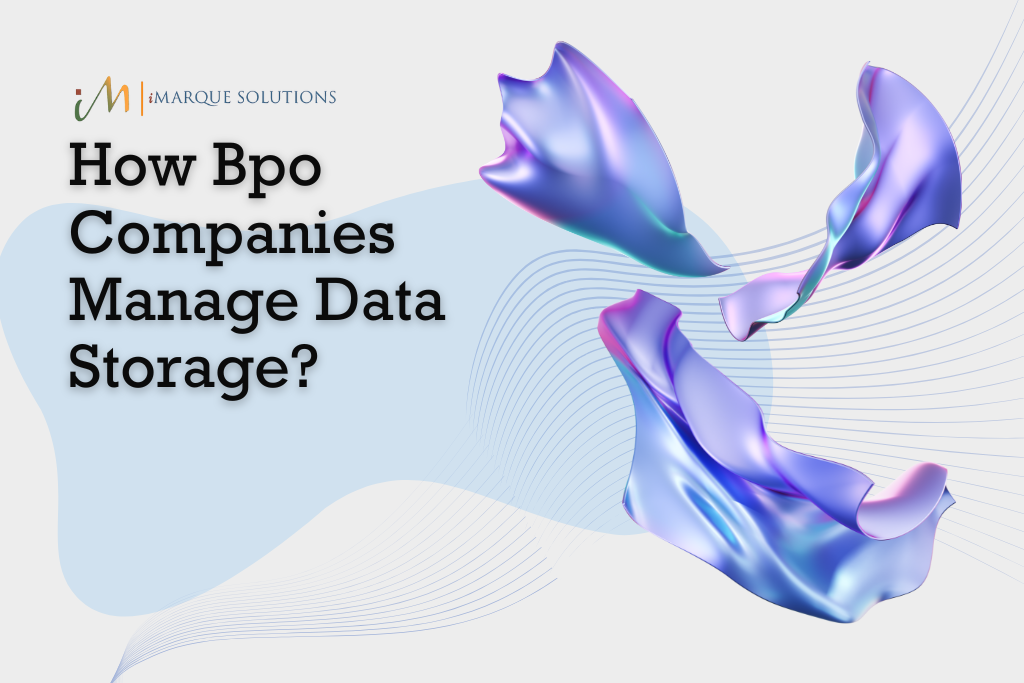Related Blogs

How Do BPO Companies Manage Their Data Production and Storage?
Table of Content
- Introduction
- Comprehensive Data Collection
- Scalable Storage Solutions
- Efficient Data Management Systems
- Robust Security Measure
- Continuous Performance Monitoring
- Scalability and Flexibility
- Conclusion
- FAQ
In the digital age, Business Process Outsourcing (BPO) companies are at the forefront of managing vast amounts of data. From handling customer service inquiries to processing transactions, these firms deal with enormous quantities of information daily. Effective data management is crucial for maintaining operational efficiency and delivering exceptional service. But how exactly do BPO companies handle their data production and storage? Let’s dive into the strategies they use to manage this critical aspect of their business.
1. Comprehensive Data Collection
BPO companies operate in diverse sectors, each with its own data requirements. To efficiently collect data, they use a variety of tools and techniques to capture information from different sources. This can include client systems, customer interactions, and transactional records. By integrating this data into centralized platforms, BPO firms ensure consistency and accuracy, creating a single source of truth for their operations.
2. Scalable Storage Solutions
Handling large volumes of data necessitates robust storage solutions. BPO companies typically use a combination of cloud storage and on-premises data centers. Cloud storage offers scalability, allowing companies to easily adjust their storage capacity based on current needs without investing in physical infrastructure. On the other hand, on-premises solutions provide greater control and can be tailored to specific security and compliance requirements. This hybrid approach ensures that data storage is both flexible and secure.
3. Efficient Data Management Systems
Once data is collected and stored, effective management systems are essential for organizing, storing, and retrieving information. BPO companies use databases, data warehouses, and data lakes to handle various types of data. Databases manage structured data, data warehouses support analytical processing, and data lakes store raw, unstructured data. This layered approach allows for efficient data handling and supports sophisticated data analysis and reporting.
4. Robust Security Measure
Data security is a top priority for BPO companies. With sensitive client and customer information at stake, they implement stringent security protocols to protect data. This includes encryption to safeguard data during transmission and storage, as well as access controls to ensure that only authorized personnel can access sensitive information. Regular security audits help identify and address potential vulnerabilities, ensuring compliance with regulations such as GDPR and HIPAA.
5. Continuous Performance Monitoring
To maintain optimal performance, BPO companies continuously monitor their data systems. Performance monitoring tools provide real-time insights into system operations, helping to detect and resolve issues before they impact performance. This proactive approach ensures that data management processes remain efficient and effective, supporting the company’s overall operational goals.
6. Scalability and Flexibility
As business needs evolve, so do data management requirements. BPO companies must be able to scale their storage and management solutions to accommodate growing data volumes and changing client needs. Scalable storage solutions and flexible data management practices allow BPO firms to adapt to new challenges and opportunities, ensuring they remain agile and responsive in a dynamic environment.
Conclusion
Managing data production and storage is a complex but vital aspect of BPO operations. By leveraging advanced technologies and implementing robust strategies, BPO companies can handle large volumes of data efficiently while ensuring security, scalability, and performance. These efforts not only support their internal processes but also enhance their ability to deliver high-quality services to clients. In a world where data is king, mastering data management is key to staying ahead in the competitive BPO landscape.
Have a question? Check out the FAQ
In this FAQ section, we answer common questions about how BPO companies handle data production, storage, security, and client access.
1. What is data production in a BPO company?
Data production in BPO refers to the process of capturing, inputting, processing, and generating structured or unstructured information to support business functions such as customer service, billing, data entry, and more.
2. How do BPOs store their data?
BPO companies use cloud platforms (like AWS or Azure), dedicated on-premise servers, or hybrid models to store data. These solutions ensure data is accessible, secure, and scalable based on client and project needs.
3. Is data security a priority for BPOs?
Absolutely. BPOs implement end-to-end encryption, access controls, firewalls, regular audits, and follow data protection regulations (like HIPAA or GDPR) to maintain high levels of security and client trust.
4. What tools do BPOs use to manage large volumes of data?
BPOs use a combination of automation tools, document management systems, cloud computing, AI-powered platforms, and custom databases to efficiently process and organize large data sets.
5. Do BPOs back up client data?
Yes, most BPOs perform regular automated backups and maintain secure disaster recovery systems to prevent data loss and ensure business continuity.
6. Can clients access the data stored by BPOs?
Yes. Clients are typically provided with secure access to dashboards or portals, allowing them to view and retrieve their data anytime, based on agreed access levels.
7. How long do BPO companies keep client data?
Data retention depends on contractual agreements and legal requirements. BPOs often retain data for a set period (e.g., 3–7 years) and securely delete it once it is no longer needed.